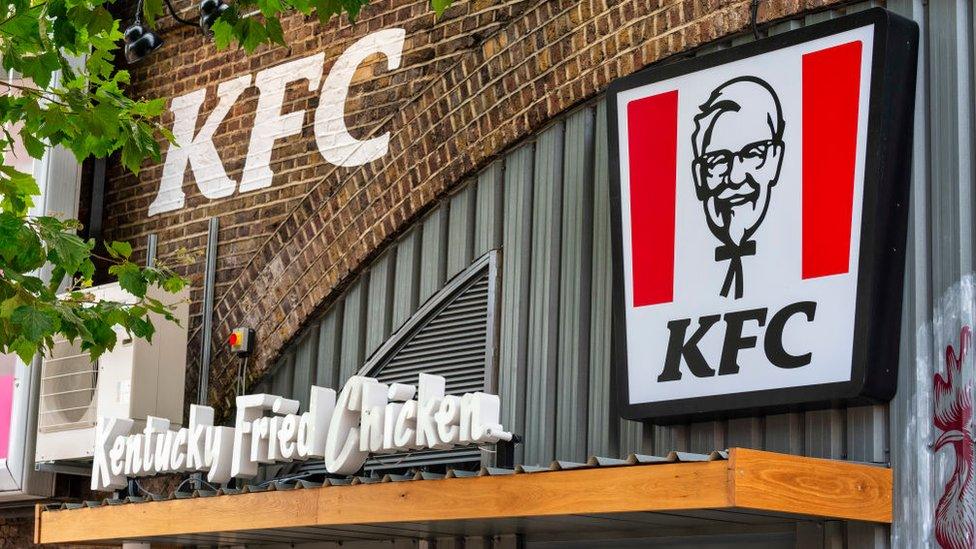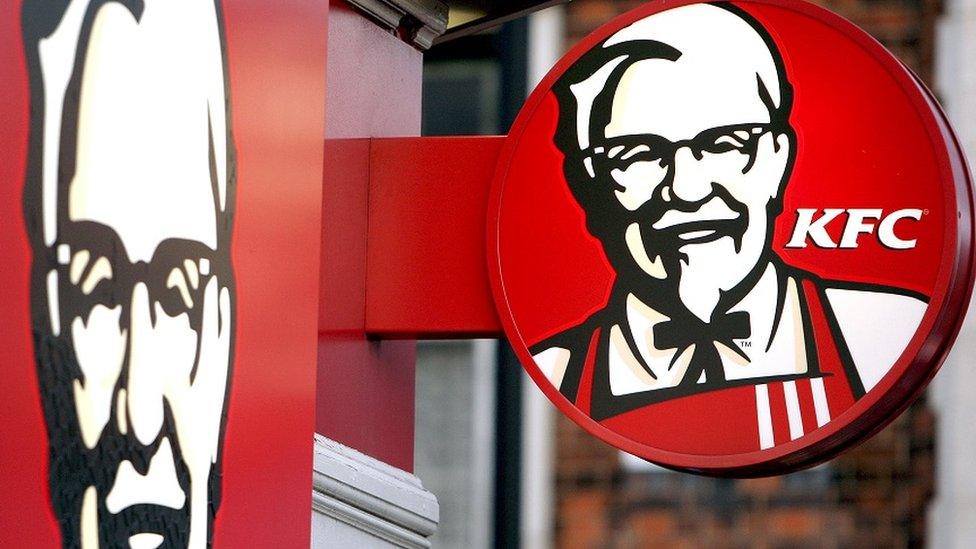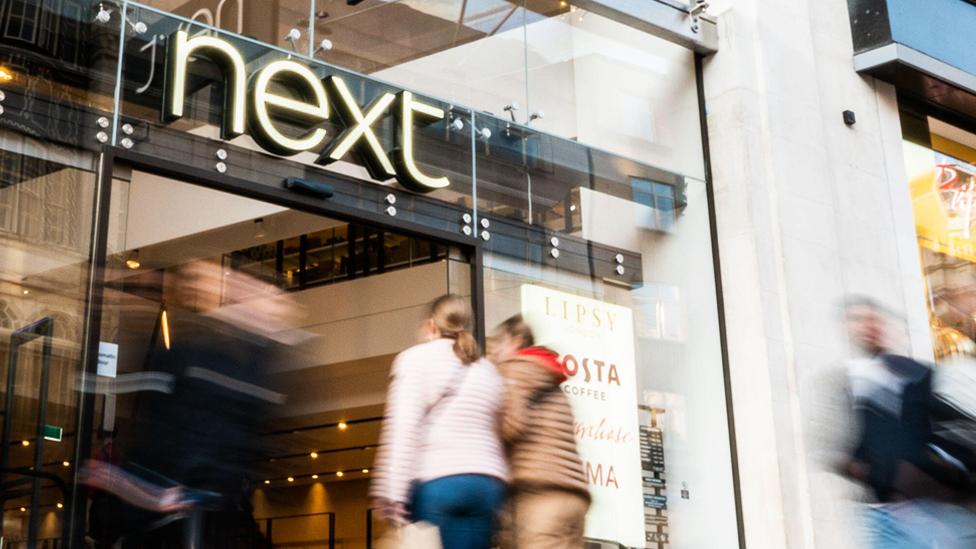KFC says a third of hires will be disadvantaged youth by 2030
- Published

KFC says that by 2030, a third of all its new hires in the UK will be young people from disadvantaged backgrounds.
The fast food chain predicts the move will help about 6,000 people get their first job, at a time when the hospitality industry is grappling with staff shortages.
KFC has about 950 restaurants across the UK.
Economists welcomed the pledge but said more needed to be done to keep young people in the workplace.
KFC said the programme, developed with the charity UK Youth, is intended to help tackle unemployment among young people.
The scheme, which will involve training and practical work experience, is targeted at people aged between 16 and 24 who have faced barriers to employment because of social, economic, domestic or mental health challenges.
Meghan Farren, general manager of KFC UK and Ireland, said: "If we're to tackle the labour shortage and provide better jobs and economic growth across the country for the next generation, then we urgently need to help young people who have been excluded from education and training opportunities to find their feet and their voice in the workplace."
She added that a pledge like this, to support younger people, was "an investment in the future of our businesses".
The announcement comes as a number of industries are battling with staff shortages. Hospitality firms such as pubs, bars and restaurants are among those that have been hard hit.
The estimated number of job vacancies fell in the three months to September, according to the Office for National Statistics. But the level still remains high with many firms struggling to recruit.
Last month, a survey by the CBI business lobby group, external found nearly three-quarters of UK companies had suffered from labour shortages in the past 12 months.
Yael Selfin, chief economist at KPMG, welcomed the initiative from KFC but said more needed to be done to help keep young people in employment.
"It's great to see companies thinking of ways to bring young people from disadvantaged backgrounds into the workplace, but what would be even better is a scheme to keep them there, and to help them progress and become more senior," she told the BBC.
Ms Selfin said it was crucial to offer ongoing training to workers, especially to those who may not have finished their education.
"Will KFC also be thinking about how to give these people opportunities to progress, and to get promoted? That's what we really need to see," she said.
Ms Selfin said it would be a "win win" if companies started thinking not only about how to recruit, but also how to retain, workers from different backgrounds.
"We're likely to continue having a tight labour market for some time, so thinking about this will also help companies position themselves for the future," she added.
Related topics
- Published10 November 2022

- Published10 November 2022
